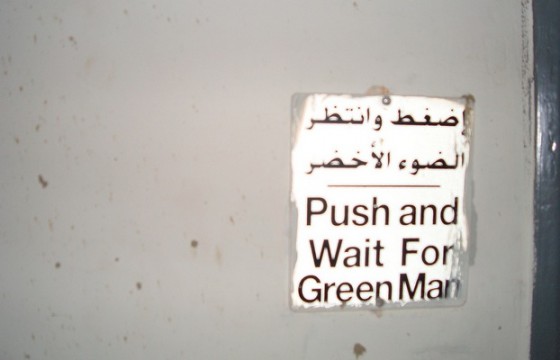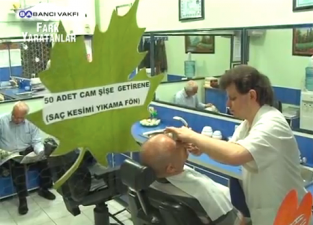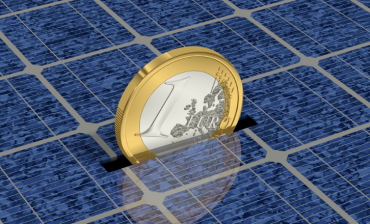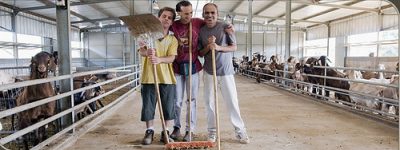 In looking toward the future, social Greens throughout the Middle East should coordinate an agenda geared toward a sustainable tomorrow.
In looking toward the future, social Greens throughout the Middle East should coordinate an agenda geared toward a sustainable tomorrow.
Both climate change and the repressive political culture that pervades the Middle East have roots in the state system and political culture of the region. The autocratic regimes of the Middle East – specifically Libya, Sudan, Saudi Arabia, the Gulf States and Iran – came about as part of the successful efforts of the formerly imperial powers of Europe, chiefly Britain and France, to preserve their economic and political interests in the domains of North Africa and West Asia they once ruled.
A process that began in the nineteenth century, intensified in the post-World I period and then continued through the early 1970s enabled the departing imperial powers to carve the regions into states. Authority over these polities was conferred on indigenous elites whose regimes were propped up by royalties from the transfer of petroleum resources to the roaring fires of the industrial West through tidy arrangements with European and increasingly American corporations.
The insatiable appetite of industry for fossil fuels coupled with market-driven economic growth and rising consumerism in the countries of the “developed” North have been the main engine of carbon-based climate change. This engine has been powered by the petroleum resources of the Middle East whose political, economic and social configuration has been designed to serve the market economies.
From an environmental point of view the carbon-based foundation of the post-colonial state system has been catastrophic. The environment, however, has not been the only casualty of the system.
The Middle East State System and Repression
The process that began with the self-immolation of a vegetable vendor in Tunisia in December 2010 and that has passed through Benghazi, Tripoli, Cairo, Sana’a, Manama, Aleppo and Damascus demonstrates that the Middle East state system has been as cruel to the masses of the Middle East as it has been ruinous to the global environment.
The political economy that has led to climate change also created family estates (ex. the oil-rentier states of the Arabian Peninsula) and inherited dictatorships (ex. Syria) that brought unrivaled wealth to the ruling cliques while denying reasonable material conditions and livelihood to millions of the people they have lorded over.
Aside from the material deprivation, the elite state system of the Middle East has and continues to use police-state repression to maintain its control over its populations as seen in recent events wracking Libya, Yemen, Bahrain and Syria.
The system provides for the mutual support of the ruling elites, as witnessed by Saudi tanks assisting in the repression of Shiite demonstrators by the ruling minority Sunni regime of Bahrain.
Twenty-First Century Enlightenment
Twenty-first century enlightenment, the new spirit moving people to demand a better future and the opportunity to shape it is proving how much a shambles the post-colonial state system in the Middle East truly is. The mass uprisings have been spawned by the depravation of basic material needs, the disenfranchisement of both domestic and foreign labor, and the denial of fundamental human rights and civil liberties to the governed.
The arbitrary creation of post-colonial states in the Middle East has prevented Kurds, Berbers and other groups from exercising self-determination and cultural autonomy. However, as exemplified by the recent referendum in the southern Sudan leading to the independence of a new African state free from the domination of a fundamentalist, dictatorial center based in Khartoum, the peoples of the region are determined to dismantle the decrepit system that has controlled and exploited them.
It is ironic that Israel, which has suffered historically from the exclusivism of the Middle East elites who promoted the notion that the Jews are foreign to the region and undeserving of self-determination here, has still not acted to extend these rights to the Palestinians. As Israeli progressive forces mobilize to replace (through the ballot box) the current government with one whose vision for the future is based on progress and justice, assisting the Palestinians in realizing their national goals alongside Israel ranks among the highest issues on the agenda of Israel social Greens.
A Common Agenda
Just as environmental degradation knows no border, the Israeli social Green agenda and that of like-minded people in neighboring countries inevitably engenders regional cooperation, not conflict. The Israeli southernmost city, Eilat, is a stone throw from the great arid landmass of the Arabian Peninsula to the East and the Sinai desert to the south.
The Gulf of Eilat and the Gulf of Aqaba (Jordan) are one and the same body of water and what transpires there directly affects the populations of both cities and their countries. Many aspects of development should be jointly planned there.
Israel’s watershed and that of the future Palestinian state are intertwined and the Jordan and other rivers of the country, now dwindled to streams, have their sources in the tributaries of the Golan Heights, which is also the source of the nearly-depleted Lake Kinneret (Sea of Galilee).
The Dead Sea, degraded by excessive mineral mining and badly planned tourist development affects Israel, Palestine and Jordan. Poor sewage treatment in the Palestinian territories as well as neglect in Israel threatens the drinking water aquifers of both nations.
As water throughout the Middle East becomes scarcer and imperils both potable stocks and economic activities it is likely that it, rather than political issues will be the major source of regional conflict in upcoming years. However, were the regional states to engage in cooperative planning of water use, jointly maintain quality and provide accessibility to all, those conflicts conceivably could be avoided.
Green Energy
With respect to energy, rather than increasing dependence on fossil fuels the vast arid lands that the people of the region share could be turned into solar estates for green energy production. Similarly, the production of wind and tidal energy installations on the Golan Height and along the Mediterranean could also significantly contribute to a sustainable energy future.
Cooperatively planned rehabilitation of the seriously endangered marine habitats along the eastern Mediterranean that run from Turkey in the north and along the coasts of Syria, Lebanon, Israel, Egypt and northern Africa is an aim in itself. It also could serve to foster aquaculture development, which many sustainability experts believe must be a major source of food in the future.
Regional Cooperation for a Sustainable Future
There is no end to the good that could come from a future Middle East guided by a sustainable vision achieved though cross-border cooperation. Israeli technology enterprises, particularly those in green-tech fields could be a major fulcrum of a cooperative program.
Capital is not a scarce resource in the region and the great wealth that has accrued to the elites through the fueling of the global environmental crisis could be redirected to the common good. What remains in the royal treasuries and foreign bank accounts of the outgoing autocrats and the economic elites after their expenditures in such follies as Masdar City, Palm Islands, the Royal Mecca Clock (“Big Ben”) Tower project in Mecca, the desert ski slopes in Dubai and other environmental monstrosities, could be reallocated to help feed and green the Middle East.
As basic material resources grow scarcer owing to a lack of visionary policy, over-mining and ambient contamination, social Greens throughout the region should coordinate agendas to makes sure that it is cooperation and coexistence, not competition and hostility that form the guidelines of governance in our adjacent countries. This is the only ways that we can possibly deliver a future to coming generations. As global change begins to affect every sphere of life on the planet, this approach is the only alternative for a livable future.
Image via my inner voice




Comments are closed.